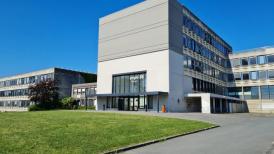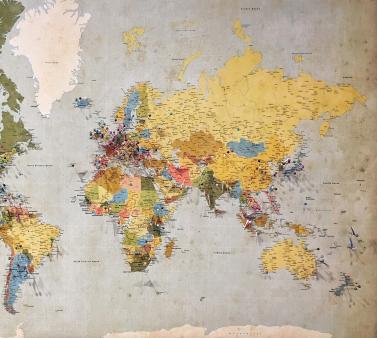
In 2016, the DESIR project was named one of five laureates of a prestigious national call for projects "Développement d’universités numériques expérimentales" (DUNE) - Development of experimental digital universities. Led by Pascal Plantard, a Rennes 2 Professor of Educational Sciences and anthropologist on the use of digital technologies, DESIR is the result of a collaborative effort between Rennes 2, the Université de Rennes 1 and the Rennes Tech alliance*.
The project, which was designed to last for five years, will finally be coming to an end later this year. "The objective of DESIR was to encourage experimentation in order to push Rennes institutions to engage in a movement in favor of educational transformations. The aim was to support and finance projects proposed in a wide variety of fields. This led to an awareness of the importance of reflecting on teaching practices," notes Jérôme Clerget, research engineer at CREAD-Living lab DESIR.
Some sixty educational innovation projects were selected and funded after two calls for interest. These educational projects were part of a variety of courses and institutions (medicine, geography, languages, public health, dentistry, statistics, etc.). The nature of the projects took many different forms: escape games, mobile applications, inverted classrooms, video capsules, etc.
The DUNE-DESIR project endeavoured to involve teachers and students in a participatory approach and a common ambition. "Many teachers are now reflecting more about the role of the student so that he or she can be more involved in the learning process. At 80%, we have projects that focus on redefining this role. The health crisis led to an accelerated project momentum: the environment was conducive for rethinking how things have always been done. Many teachers involved in DUNE DESIR seized upon this opportunity to carry out a global reflection on teaching, and not only on the use of digital tools to be remote", notes Matthieu Serreau, also a research engineer at CREAD-Living lab DESIR.
In addition to academic performance, the social, creative and relational skills of the students were supported and developed in all the educational projects selected by DUNE DESIR. "Most of the time the students were involved very early on, from the design stage. The common denominator was to motivate the students to be more involved in their learning with the underlying idea of developing transversal, behavioural (teamwork, expression, etc.) or even technical skills (in the context of video production, for example), which can be highly valued in their professional lives," explains Jérôme Clerget.
DUNE DESIR has also created a support structure, the Maison de la Pédagogie, to offer the support of an educational engineer to project leaders. Meetings, the Midis de la Pédagogie, were organised to allow teachers the opportunity to exchange on their practices. A living-lab allowed researchers in education sciences to use the experiments carried out in the framework of DUNE DESIR as a research field. Finally, a data-tank brought together specialists in quantitative data: "They analysed, for example, the number and time of students' connections, the type of documents they consulted, etc.", explains Jérôme Clerget.
The closing seminar of DUNE-DESIR will be an opportunity on 1 July to take stock of the systems and various experiments implemented, but also to analyse the transformations at work (teaching practices, student involvement, our overall academic offer).
---------------
*AgroCampus Ouest, Centrale Supélec, École des Hautes Etudes en Santé Publique (EHESP), Ecole Nationale de la Statistique et de l’Analyse de l’Information (ENSAI), École Normale Supérieure de Rennes (ENS Rennes), l’École Nationale Supérieure de Chimie de Rennes (ENSCR), l’Institut National des Sciences Appliquées (INSA Rennes) et Sciences Po Rennes




